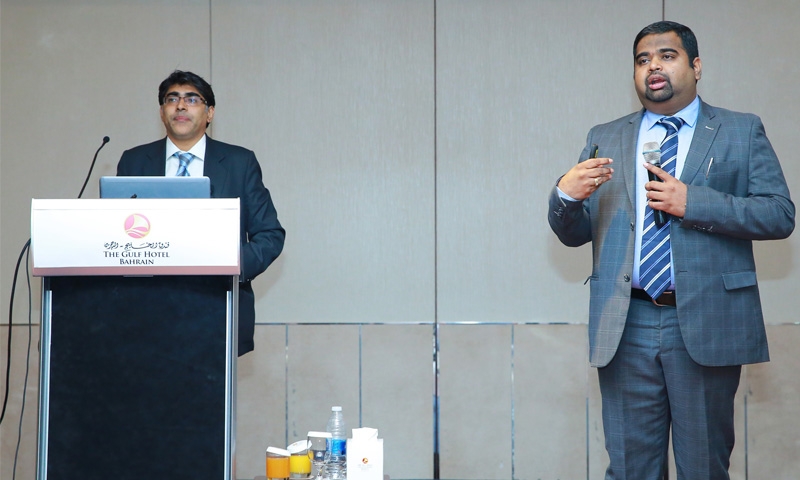Preparing for VAT
Manama : The complexities which VAT poses, and the challenges businesses will face in the times to come are issues which have perplexed the industry for the past year. To assuage and answer some of the concerns which have plagued the minds of the business community in Bahrain, a seminar was held yesterday by WTS Dhruva Consultants.
With a major turn out from key players across multiple-sectors (ranging from hospitality, finance to real estate and logistics) attending the seminar, various implementational challenges were discussed
at length. Some of the key hurdles which businesses would have to ensure at the time of implementation were; strict adherence to the invoicing rules and ensuring that your vendors are in compliance of the same.
Further, practical difficulties such as mandatory issuance of invoices in Arabic language were brought forward. The proper documentation/record keeping, and invoicing rules will lead to a major shift in the internal administration of their business. Gaurav Khurana (Executive Director, WTS Dhruva-Bahrain) emphasized on the need for businesses to be prepared, as on the implementation date it would be near-impossible for businesses to ready their IT-infrastructure and business processes for this tectonic shift in fiscal policy.
Additionally, Pratik Shah (Partner, WTS Dhruva-Dubai) shed light on hurdles faced at the time of implementing VAT in the UAE, stressing on issues such as differential VAT treatment of residential/commercial property (real estate sector), valuation of online billing (hospitality sector), treatment of gift vouchers (retail sector); covering major industry specific problems which are being faced by companies in the
UAE. To make this implementational and compliance process easier for the companies WTS Dhruva also discussed the VAT compliance co-developed with its partner, the tool which would provide various functional and operational benefits to companies, some of which are automated error reporting of accounting entries, easy integration with ERP systems, acting as a ready repository of return data, etc. Finally, a broad overlay of how companies should start planning for VAT was provided to the attendees.
To have a smooth transition, it was strongly advised that companies begin forming a VAT task force from October 2018 and analyze the major revenue streams where there might be VAT impact (based on the GCC VAT Agreement and existing VAT laws) so that companies have a fair idea of what changes they would have to make once the law is introduced.
By the end of this financial year it was highly recommended that organizations have their ERP systems in place for invoicing and proper maintenance of accounts and allied fields, so that companies are not overwhelmed when VAT is implemented. In conclusion, companies must act fast to be prepared for this massive change which will affect the way in which businesses has been carried out in the region, as it will affect everything from IT and HR to Finance, and company policies. Accordingly, failure to prepare for VAT in advance will prove to be an arduous task for businesses post its introduction.
Related Posts

